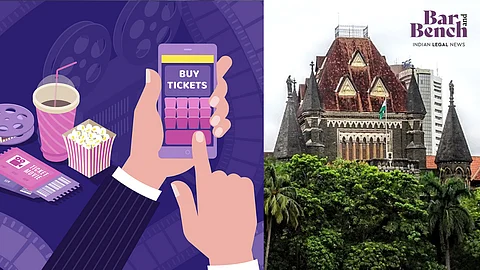Online movie ticket booking and Bombay High Court
Litigation News
Bombay High Court upholds entertainment duty on convenience fees for online movie tickets
The Court held that convenience fee is an inextricable part of buying ticket online for entertainment and would therefore, fall under the purview of entertainment duty.
The Bombay High Court on Wednesday upheld the constitutional validity of a 2014 amendment to the Maharashtra Entertainments Duty Act which allows the State to levy entertainment duty on convenience fees exceeding ₹10 charged by cinema owners or ticketing platforms to facilitate online booking of movie tickets [FICCI-Multiplex Association of India and anr v State of Maharashtra and Ors]

